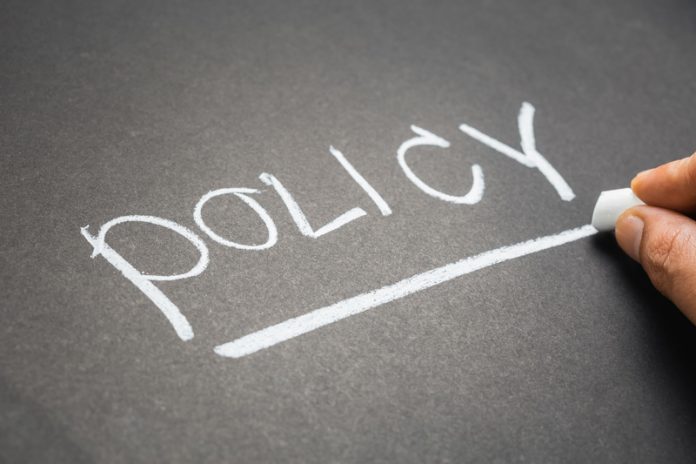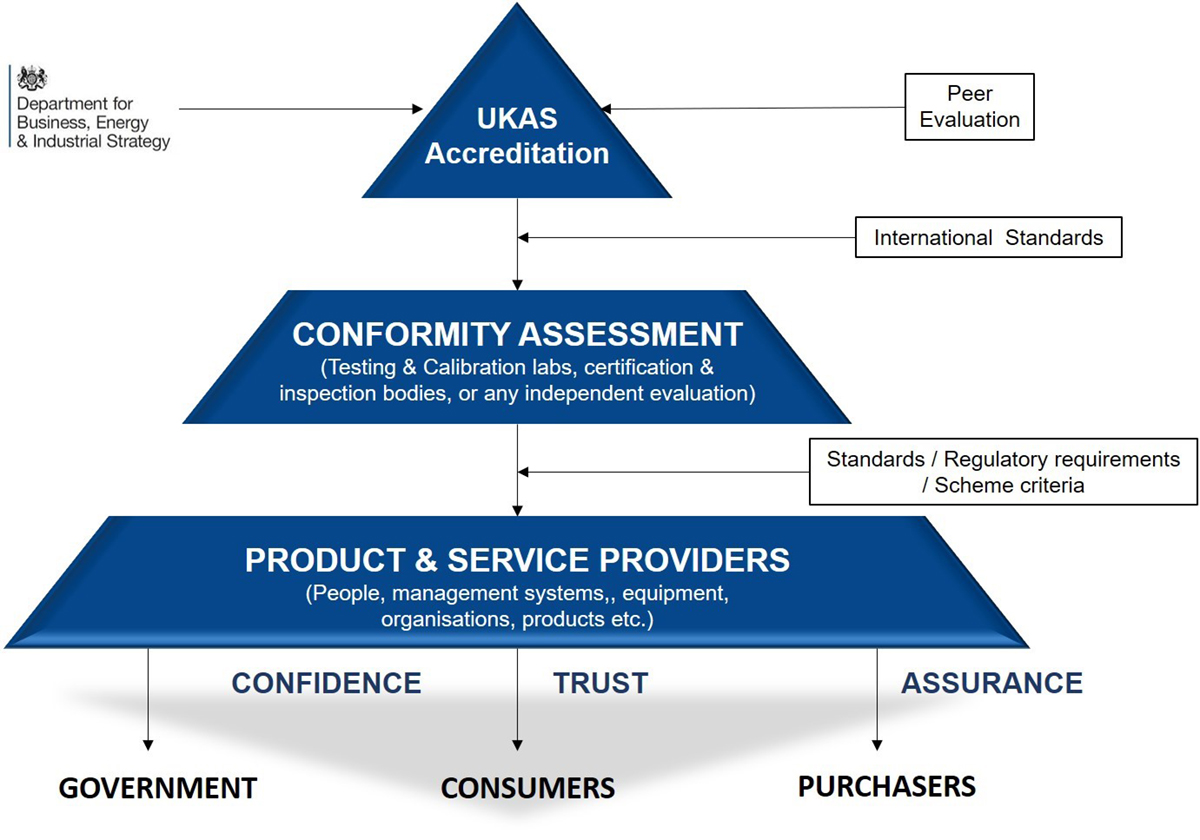Here, Suzi Daley, External Affairs Advisor UKAS, explains the role of United Kingdom Accreditation Service (UKAS) and how accreditation can help deliver your policy objectives
The United Kingdom Accreditation Service (UKAS) is the sole body recognised by the UK Government to assess the competence, integrity and consistency of organisations carrying out conformity assessment activities against internationally recognised standards. By conformity assessment we mean organisations offering testing, inspection, calibration, verification and certification services.
UKAS is a non-profit-distributing company limited by guarantee and is appointed as the national accreditation body by Accreditation Regulations 2009 (SI No 3155/2009) and the EU Regulation (EC) 765/2008. It operates under a Memorandum of Understanding with BEIS on behalf of the government.
UKAS is regularly reviewed by international peers to demonstrate its competence to be a signatory to European and International accreditation multilateral mutual recognition agreements (EA, IAF, and ILAC respectively). Through these multilateral mutual recognition agreements, the need for multiple assessments of suppliers is reduced therefore UKAS accreditation also helps to facilitate international trade. This can be demonstrated by the reference to accredited conformity assessment in the WTO’s Technical Barriers to Trade Agreement.
So how is this relevant for government policymakers and regulators?
Conformity assessment and accreditation are important parts of the nation’s quality infrastructure. By providing confidence in goods, services, management systems and people, they make a significant contribution to the economy, health and safety, and environment.
But equally the confidence and assurance that UKAS accredited organisations provide can play an important role in improving the regulatory landscape; providing an opportunity to reduce the burden of regulation whilst ensuring quality standards and important safety measures are not compromised or reduced.
UKAS accreditation has been successfully used by regulators and policymakers to support and complement existing regulatory regimes; enabling regulators to use a more risk-based and outcomes-focused approach which has resulted in better targeting of resources by regulators.
UKAS accreditations also underpin government policy in areas as diverse as environmental management, food safety and quality, medical services and forensic science. More recently UKAS has been working with the government in areas such as climate change, aesthetic medicine, and digital and data-driven technologies. Accredited conformity assessment is being used by policymakers and regulators in a number of ways including:
Self-regulation
Accreditation can be used as part of a self-regulatory regime. Providing assurance to regulatory agencies (and the public) that businesses are complying with voluntary standards, codes of practice or conduct.
An example is the Health and Safety Executive’s approved code of practice on the Control of Legionella which requires employers and landlords to carry out risk assessments undertaken by a “Competent Person”. UKAS accredits inspection bodies against the recognised BS standard for Legionella risk assessment and the rigour and impartiality of a UKAS assessment means that business and the HSE can have confidence in the outcome of the risk assessment.
Earned recognition
Earned recognition is where businesses can ‘earn’ recognition from regulators, in the form of reduced costs or inspections, for demonstrating high levels of compliance. For example, the Drinking Water Inspectorate (DWI) operates earned recognition to support its reassurance that public water supplies in England and Wales are safe and that drinking water quality is acceptable to the public.
Accreditation of laboratories under the Drinking Water Testing Standard Scheme (DWTS) significantly reduces the burden of DWI audits, as the need for the Regulator to routinely audit or inspect the laboratory is removed. Conversely, if a laboratory chooses not to adopt DWTS, they will be subject to risk-based vertical audits, including audits of samplers by the DWI. The costs of DWI audits or inspections of laboratories used by water companies are recovered by the DWI, and so there are clear financial benefits of being accredited under the scheme.
Co-regulation
Co-regulation is where the government sets the top-level regulatory requirements and leaves the sector to define how these general principles are met in terms of technical solutions.
An example of this is UKAS’s role in the delivery of the eiDAS Regulation (Regulation (EU) 910/2014). The Regulation requires that Trust Service Providers’ (TSPs), the bodies providing digital certificates for the creation and validation of electronic signatures, are audited by a UKAS accredited certification body to the requirements of the international standard for organisations certifying products, services or processes (ISO/IEC 17065). UKAS worked with the Information Commissioner’s Office to produce guidance for the implementation of eiDAS in the UK.
UKAS accredits certification bodies to certify TSPs under the ETSI (European Telecommunications Standards Institute) standards for the operation and certification of TSPs which were designed to meet eiDAS. This means that government and consumers can have confidence in TSPs without direct government intervention.
These are just a few examples of how UKAS is working with government, regulators and business to deliver policy and regulatory solutions. As both policy and industry, UKAS will continue to work closely with all government departments to ensure accreditation remains an effective, market-led and valuable tool that delivers policy objectives in a reliable and cost-effective way.
You can find out more about UKAS at:
https://www.ukas.com/about/working-with-government/
Please note: This is a commercial profile
Suzi Daley
External Affairs Advisor
United Kingdom Accreditation Service (UKAS)
Tel: +44 (0)178 442 8802












